Charity Chigulu a journalist at Radio Africa Group is a visually impaired woman whose journey through adversity has not only defined her career but also inspired many around her.
Born in Kilifi County, Charity began her career as a newsreader for Radio Jambo in September 2015 after volunteering at Radio Rahma in Mombasa County.
However, Charity’s career journey took a challenging turn in 2017 when she was diagnosed with glaucoma.
The National Eye Institute defines Glaucoma as a group of eye diseases that can cause vision loss and blindness by damaging a nerve in the back of the eye called the optic nerve.
Charity Chigulu narrates that she started experiencing challenges moving around and her vision later became blurred.
“I started experiencing difficulties in seeing. You know when you look at a lit bulb and see a ring around it? I saw that, but I just concluded that maybe my glass lenses had become weak,” Charity told The Kenya Times.
She also added that at times when she was on air presenting news, she would get a blackout forcing her to temporarily stop while in the process of reading.
![Against All Odds: How A Visually Impaired Journalist Is Changing The Game [Video] Chigulu Writes Using A Laptpop Installed With Jaws (Job Access With Speech). Photo/ Tkt](https://thekenyatimes.com/wp-content/uploads/2024/06/Char.png)
When Did Charity Chigulu Realize She had Glaucoma
In 2017, Charity Chigulu spent her annual leave in Mombasa with her ex-husband, who left her after three years of marriage.
She narrated how she struggled to leave the house independently while experiencing blurred vision that made everything look misty.
“I once stepped out after it had rained, and I walked through water without noticing. People laughed at me, and I felt intimidated. If I needed to go somewhere, he (her husband) would drop me off and pick me up later,” Charity recalled.
“At night, I would see something like rainbow especially around the bulbs and I thought it was the specs that had an issue.”
Also Read: Meet Rosemary Litunya, Woman Who Owns Lucrative Architect Company
She was forced to visit an eye specialist in Mombasa who informed her that she had a condition called glaucoma.
“The doctor informed me that 97 percent of my optic nerves were destroyed. I told the doctor no, it can’t be. So, I inquired more about the disease. He said it is hereditary and runs through the family,” she said.
“He asked me if we had anyone with the condition, I said no one is blind in our family, even though most of my family members wear glasses.”
The doctor would later prescribe eye drops to help protect her remaining optic nerves and referred her to another specialist at Nairobi Hospital.
Due to denial, Charity visited a different hospital in Nairobi for a second opinion but after thorough examination the doctor confirmed she had Glaucoma.
The doctor who bluntly told her that her case was desperate advised her to see a glaucoma specialist.
“I later went to see Dr. Sheila Mako, a glaucoma specialist at Aga Khan Hospital. She handled my case and reassured me not to worry,” Charity said.
“She was positive but confirmed that my sight was severely impaired and advised me to continue using the eye drops, as they would help to some extent.”
The Journalist Joining Kenya School of the Blind
Dr. Mako told Charity to go to the Kenya Society for the Blind to be trained on how to use a white cane.
“I told her I am never coming back to that hospital again. How can she ask me to go to the Kenya Society for the Blind? This is for blind People but am not blind,” Charity said.
Chigulu became completely blind in 2018 and was advised to go for rehabilitation. She called her boss, Susan Kimachia, who asked her to visit her at the office, where they sat down and talked.
It was here that Kimachia suggested they inform the management about her condition, but Charity declined, fearing she would lose her job.
In the third week after her sit-down with Susan, Radio Africa Group HR called Charity in, and she thought it was the end of her career at the media house.
“The HR together with Susan sat me down, and I narrated what was happening,” she said.
“I told HR I have been directed to go to the Kenya Society for the Blind for counselling, rehabilitation and also so that I am able to go on with my work.”
Charity eventually accepted the advice to join the Kenya Society for the Blind. There, she learned to use a computer without sight and began writing news stories again.
She said Radio Africa Group paid for her rehabilitation in the school and had been supportive in counselling her.
What kept her going during the rehabilitation was the urge to prove that she could do it, and also because she didn’t want to lose her job and go back home since both of her parents had died.
“I told myself, Charity, you are not a cabbage, you cannot be. My brain and hands are not blind. I also had my voice, which I consider my weapon,” she said.
“I used to lead praise and worship at church before I lost my sight, and they didn’t tell me to step down, that also kept me going.”
How Chigulu Works Despite Visual Impairment
When Charity returned to work after six months at the Kenya Society for the Blind, Radio Africa Group provided her with a laptop equipped with JAWS which quoted around Ksh. 150,000.
JAWS, which stands for “Job Access with Speech,” helps individuals with visual impairments interact with computers by converting on-screen text into speech and providing other auditory cues.
This software is widely used in educational, professional, and personal settings to enable blind and visually impaired users to navigate the digital world independently. Unable to continue reading news on the radio, Charity learned to script news.
After mastering the art of writing stories without sight, she began creating awareness with health stories, particularly on glaucoma and other health issues.
The Journalist said she was also taught how to move around using the white cane as well as to do a few house chores.
Also Read: Against All Odds; How a Journalist Rose Through Ranks Despite Being Deaf
What Keeps her Moving
The journalist finds satisfaction when her stories impact listeners’ lives.
Despite her vision loss, Charity writes compelling health stories for radio audiences, focusing on eye-related ailments, and contributes insightful pieces to the Star newspaper.
She mostly works from home, writing news scripts for Radio Jambo and news stories for the Star newspaper.
Charity Chigulu also translates from Kiswahili to English and does voice-overs for people who request anonymity.
She said that she has supportive colleagues who help her move around and ensure she boards a matatu that drops her home safely.
More About Glaucoma
The National Eye Institute states that there is currently no cure for glaucoma and vision loss is irreversible, but early treatment can often halt the progression and preserve vision.
Glaucoma encompasses various types, with open-angle glaucoma being the most common form. Other less frequent types include angle-closure glaucoma and congenital glaucoma.
Initially, glaucoma typically does not present symptoms, which is why half of those affected may not realize they have it.
As the condition progresses, vision loss often begins gradually, starting with peripheral vision, particularly the area closest to the nose.
This slow progression means many individuals may not initially notice changes in their vision.
However, as the disease advances, individuals may experience difficulty seeing objects to the side.
Charity Chigulu’s story is a testament to her indomitable spirit and dedication to journalism, inspiring many with her ability to overcome adversity and excel in her field.
Follow our WhatsApp Channel for real-time news updates!
![Against All Odds: How A Visually Impaired Journalist Is Changing The Game [Video] Charity Chigulu. Photo/ Chigulu](https://thekenyatimes.com/wp-content/uploads/2024/06/CHG-e1719241793164-750x375.jpg)

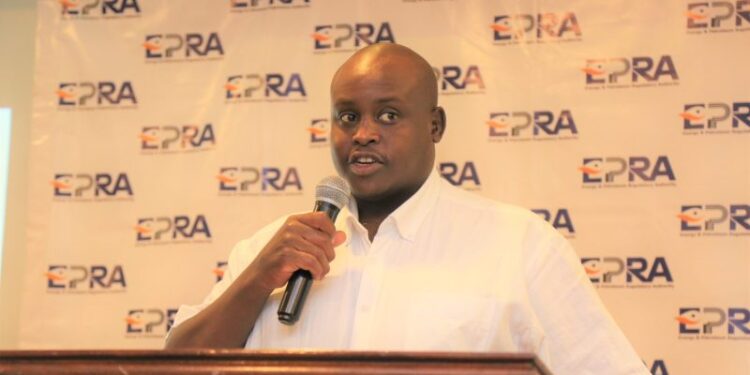

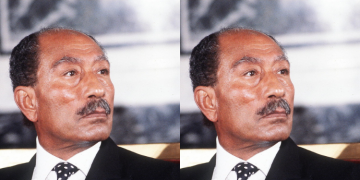


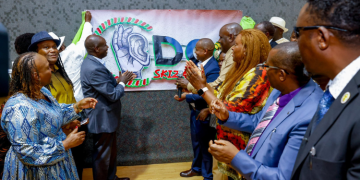

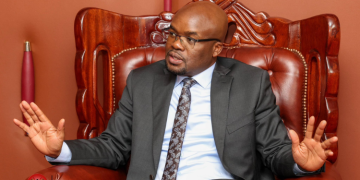
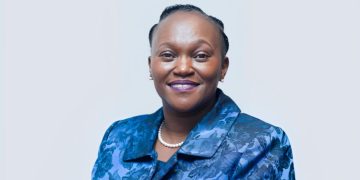






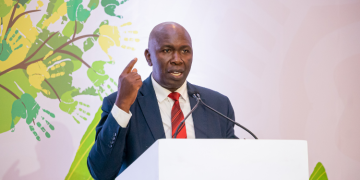




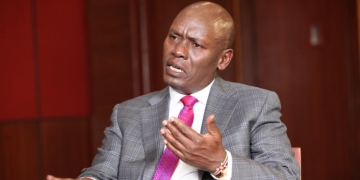






















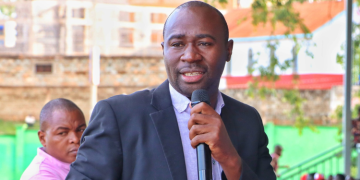
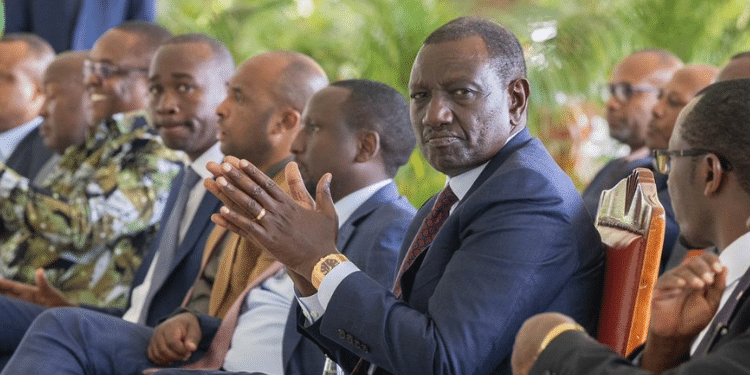


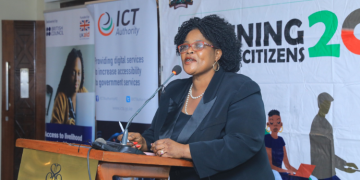
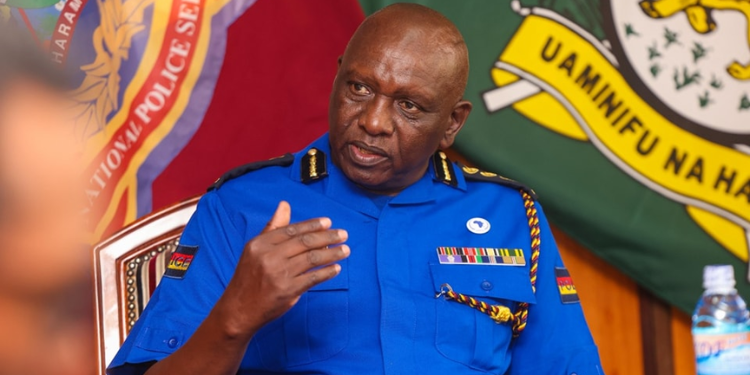



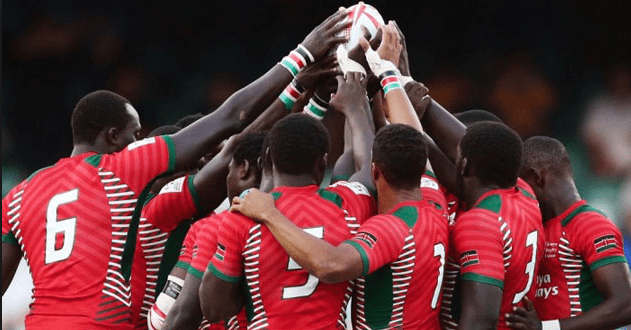















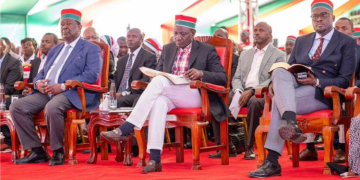

![Against All Odds: How A Visually Impaired Journalist Is Changing The Game [Video] A Side-To-Side Photo Of Charity Chigulu .Photo/ Chigulu/ Tkt](https://thekenyatimescdn-ese7d3e7ghdnbfa9.z01.azurefd.net/prodimages/uploads/2024/08/Untitled-design-2024-08-18T173139.477.png)

